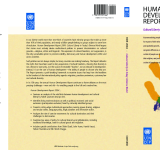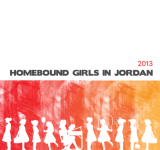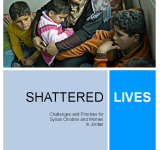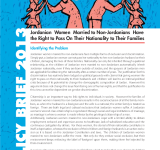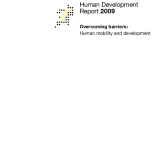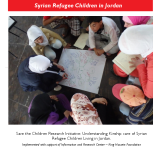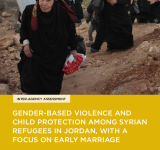Accommodating people's growing demands for their inclusion in society;; for respect of their ethnicity;; religion;; and language;; takes more than democracy and equitable growth. Also needed are multicultural policies that recognize differences;; champion diversity and promote cultural freedoms;; so that all people can choose to speak their language;; practice their religion;; and participate in shaping their culture—so that all people can choose to be who they are. In recent years the Human Development Report has argued strongly that this is as much a question of politics as economics—from protecting human rights to deepening democracy. Human development is first and foremost about allowing people to lead the kind of life they choose—and providing them with the tools and opportunities to make those choices. The 2004 Report builds on that analysis;; by carefully examining—and rejecting—claims that cultural differences necessarily lead to social;; economic and political conflict or that inherent cultural rights should supersede political and economic ones. Instead;; it provides a powerful argument for finding ways to “delight in our differences”;; as Archbishop Desmond Tutu has put it. It also offers some concrete ideas on what it means in practice to build and manage the politics of identity and culture in a manner consistent with the bedrock principles of human development.
Mobility
إن الهدف من التقرير هو التحقق من ظاهرة الفتيات جليسات المنازل في الأردن;; وهن الفتيات اللواتي انسحبن من المدرسة ويبلغن من العمر اقل من 18 سنة سواء كان الانسحاب رغبة منهن أو تم سحبهن من قبل عائلاتهم;; ويقضين أيامهن بالعمل في المنزل. ويهدف هذا التقرير إلى: أولاً فهم الأسباب إلتي أدت إلى حبس هؤلاء الفتيات;; ثانياً إلى تحديد التدخلات الممكنة التي تسمح للفتيات جليسات المنازل الوصول إلى التعليم وتساهم في تعزيز نموهم الاجتماعي. وتم تنفيذ البحث من خلال الاعتماد على منهجية البحث النوعي حيث تم اجراء مقابلات شخصية معمقة مع 46 فتاة جليسة منزل و40 والدة وذلك في أربعة مناطق في الأردن وهي: ماركا;; معان;; المفرق;; والزرقاء;; وكما تم العمل على مراجعة الأدبيات والتشريعات الموجودة والمتعلقة بحقوق الأطفال مع التركيز على قضية عمالة الأطفال.
With an executive summary on the Syrian refugees situation in Jordan;; the report combines the conclusions of detailed assessments in various areas including as child protection and gender-based violence;; education;; water sanitation and hygiene;; and nutrition and health. It provides a holistic picture of the situation faced by Syrian children and women in Jordan to draw out recommendations for necessary plans of action. Some key findings of the report include growing challenges for water;; sanitation and hygiene situation in Za’atari camp;; several threats to the nutritional status and health of Syrian girls;; boys and women and increasing violence against adolescents. Bringing together the voices of children and women at the camps;; the report examines the situations of Syrian refugees in host communities and refugee camps and finds key recommendations based on them.
يتناول موجز السياسات هذا قضية النساء الأردنيات المتزوجات من رجال غير أردنيين واعطائهن الجنسية لعائلاتهن;; حيث يعرض المشكلة والنتائج المترتبة على كل من الزوجة والأبناء والعائلة في حال عدم الحصول على الجنسية;; وكما تناول موقف القانون الدولي من حق المرأة بمنح جنسيتها لأفراد عائلتها وذلك إلى جانب التناقض الموجود في التشريعات الأردنية;; بالاضافة إلى عرض الصعوبات الاقتصادية من جراء عدم التجنيس. وكما تناول الاسئلة الأكثر تكراراً;; وانتهى بتقديم مجموعة من التوصيات موجة لكل من مجلس الأمة والسلطة التنفيذية.
Migration;; both within and beyond borders;; has become an increasingly prominent theme in domestic and international debates;; and is the topic of the 2009 Human Development Report (HDR09). The starting point is that the global distribution of capabilities is extraordinarily unequal;; and that this is a major driver for movement of people. Migration can expand their choices —in terms of incomes;; accessing services and participation;; for example— but the opportunities open to people vary from those who are best endowed to those with limited skills and assets. These underlying inequalities;; which can be compounded by policy distortions;; is a theme of the report. The report investigates migration in the context of demographic changes and trends in both growth and inequality. It also presents more detailed and nuanced individual;; family and village experiences;; and explores less visible movements typically pursued by disadvantaged groups such as short term and seasonal migration.
his 2005 Human Development Report takes stock of human development;; including progress towards the MDGs. Looking beyond statistics;; it highlights the human costs of missed targets and broken promises. Extreme inequality between countries and within countries is identified as one of the main barriers to human development—and as a powerful brake on accelerated progress towards the MDGs. The report suggests that the world's governments are faced with a choice. They can start a decade for development with the financial resources;; technology and capacity to end poverty or we could have a human development failure. “Business as usual” will not allow fulfilling the promises and the commitments made in 2000. The cost of this failure will be measured in human lives;; increased inequalities;; violations of human rights and threats to peace.
Throughout history water has confronted humanity with some of its greatest challenges. Water is a source of life and a natural resource that sustains our environments and supports livelihoods – but it is also a source of risk and vulnerability. In the early 21st Century;; prospects for human development are threatened by a deepening global water crisis. Debunking the myth that the crisis is the result of scarcity;; this report argues poverty;; power and inequality are at the heart of the problem.The 2006 Human Development Report continues to frame debates on some of the most pressing challenges facing humanity.
The report aims to address the particular needs and cultural dynamics of Syrian refugees residing in Jordan;; especially with regards gender-based violence and child protection issues. It presents a comprehensive range of perspectives from urban Syrian refugees and local Jordanian decision makers in government;; community-based organizations and the religious and education sectors. The assessment of this report is based on data collected through three methodologies including questionnaire survey to refugees outside the Za’atari refugee camp;; focus group discussions in regions across Jordan and in-depth interviews. Key findings of the report are 1. The rates of early marriage are high;; 2. A significant percentage of children contribute to the household’s income and 3. Restrictions on women and girls’ mobility constrain their participation in social and economic activities and access to basic services. The report recommends measures to prevent acts of sexual exploitation and abuse and ensure the needs of the most vulnerable members of the Syrian refugee population in the cities.
